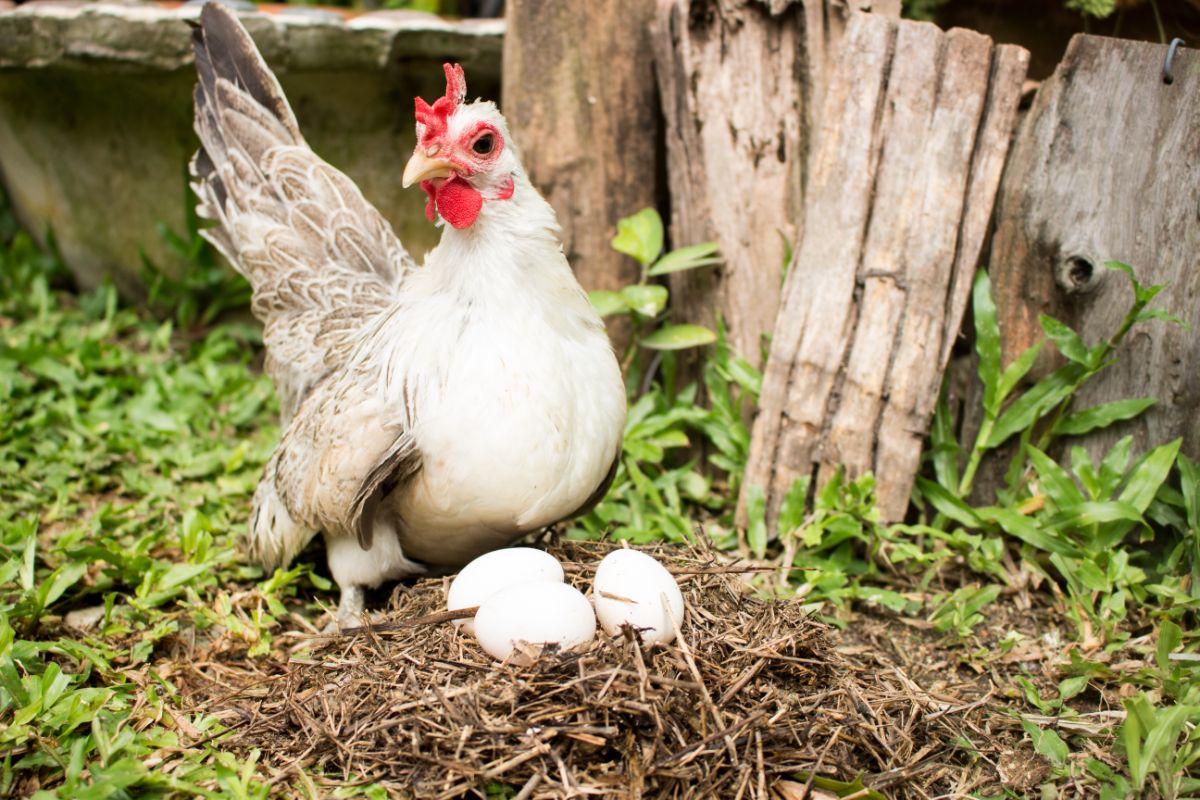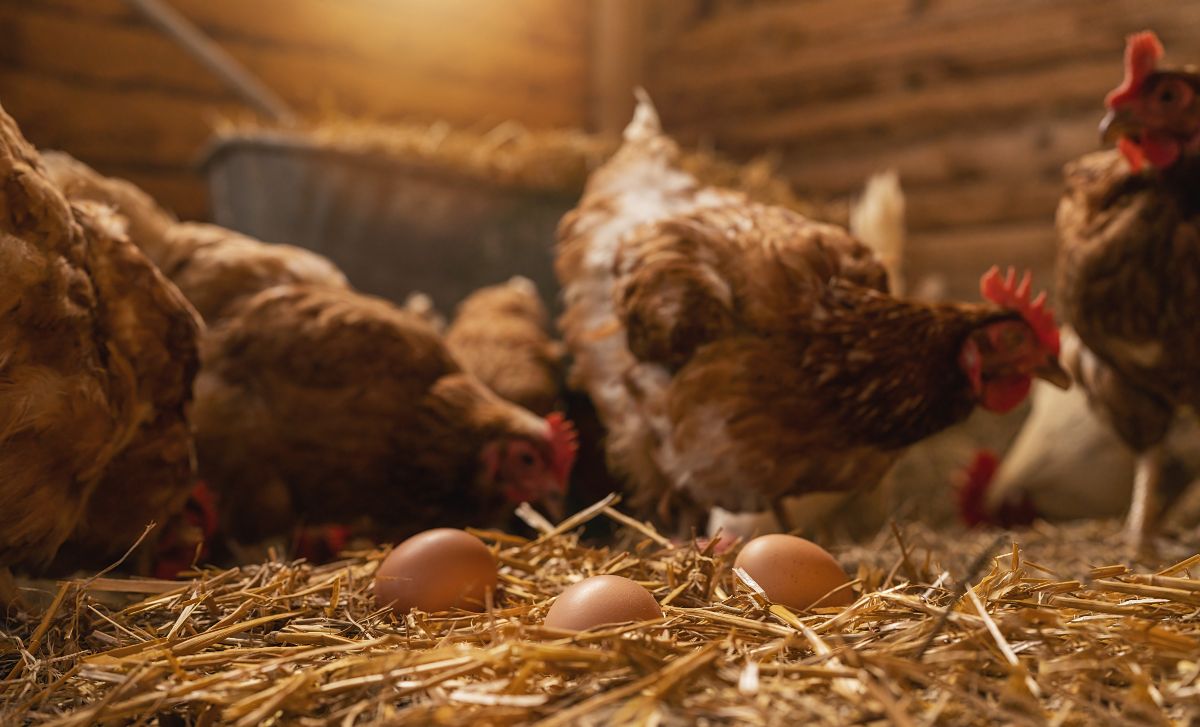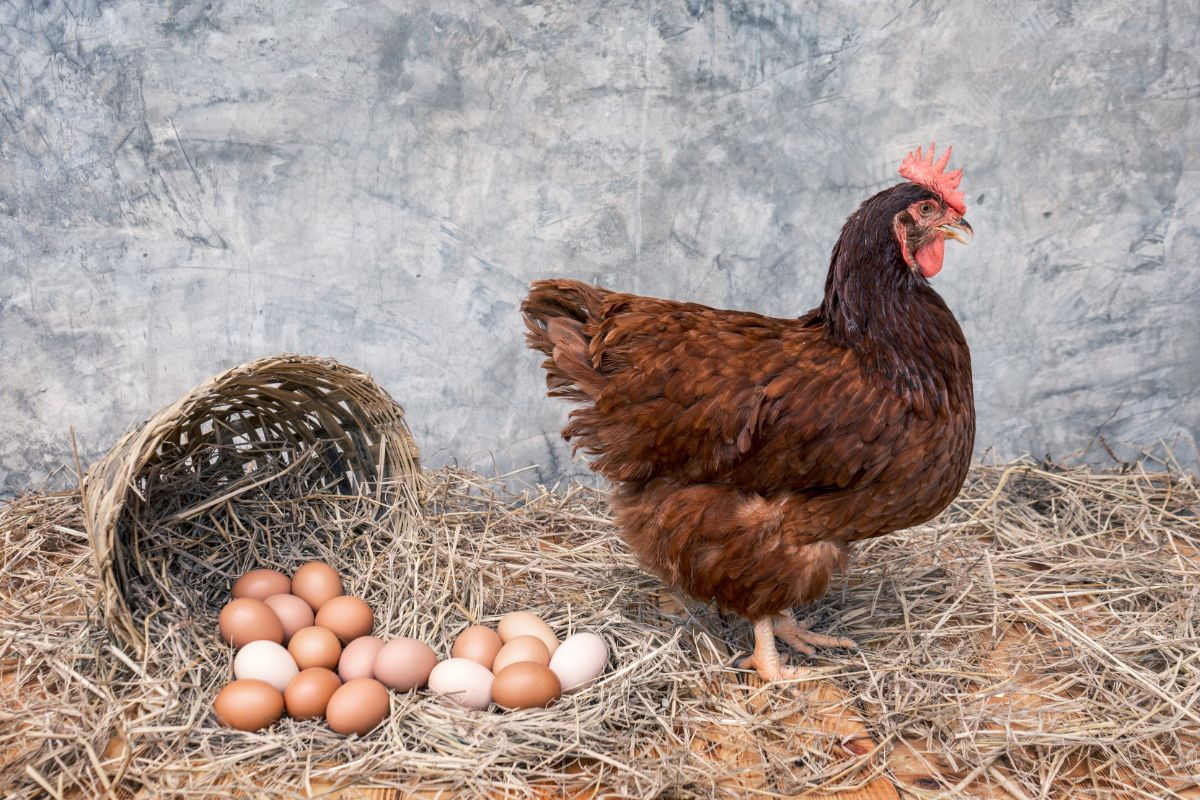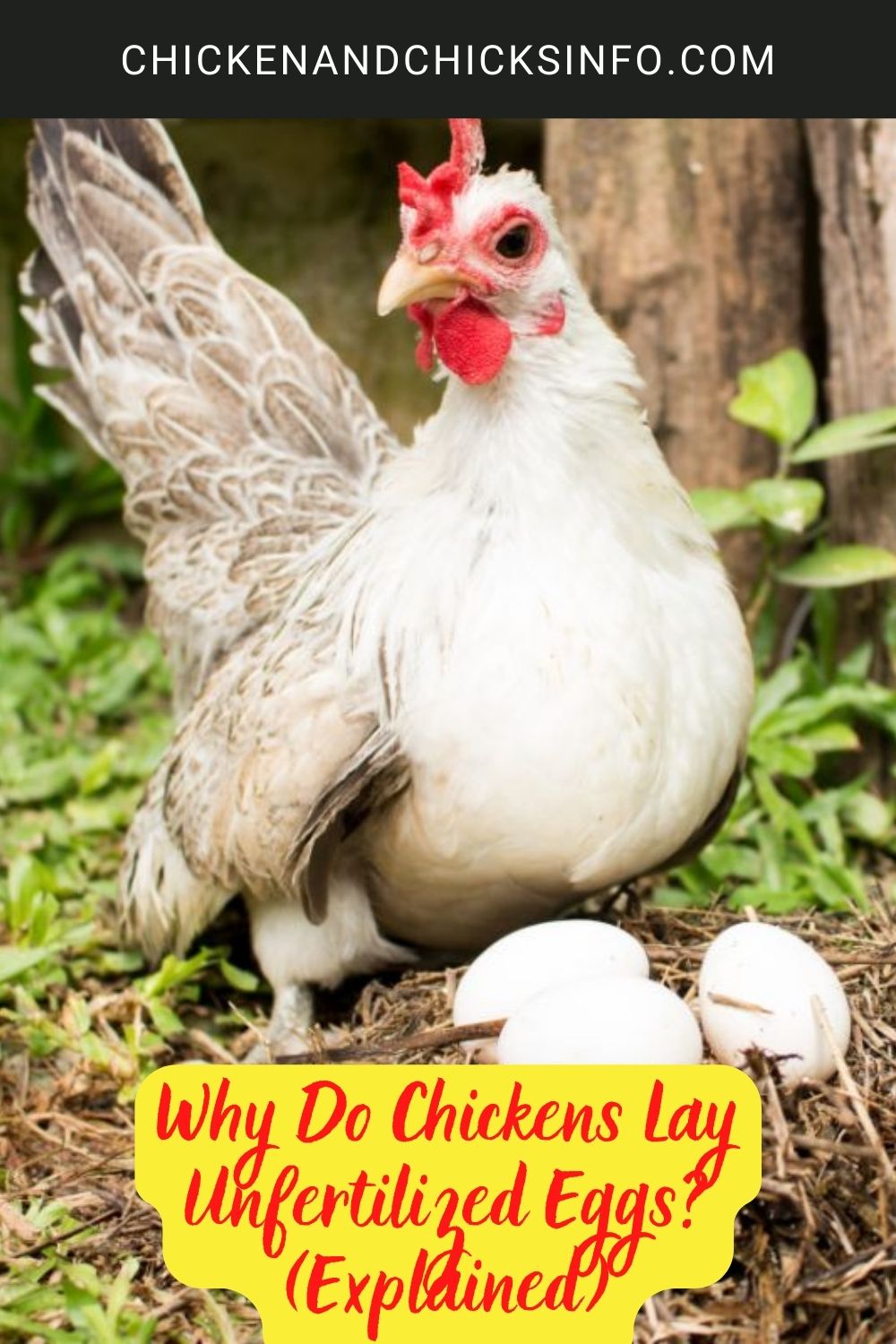
One of the questions that come up a lot when discussing egg-laying hens is, "why do chickens lay unfertilized eggs?"
The obvious answer from our standpoint is that it's because we need eggs to eat.
But there has to be a lot more to it than that.
Plus, it comes as a surprise to many that hens lay eggs with or without a rooster present and don't know if their eggs are fertilized!
In this article, I'm going to explain why hens lay unfertilized eggs, the difference between fertilized and unfertilized eggs, and some other interesting egg-related facts!
Jump to:
Why Do Chickens Lay Unfertilized Eggs?

First of all, it comes as a surprise to many that hens are capable of laying eggs that aren't fertilized.
That's right, not every egg has a chance of hatching a chick. In fact, hardly any eggs, especially those being sold in grocery stores are fertilized.
For an egg to be fertilized, a rooster needs to have mated with the hen.
This just isn't possible in most factory and commercial settings as they don't have roosters in their flocks or roaming around.
So, why do hens lay eggs that aren't fertilized if there is no chance of their eggs hatching chicks?
Well, the main reason is that hens don't know if their eggs are going to be fertilized.
Whether they've mated with a rooster or not, the sperm from a rooster fertilizes an egg after the process has started.
It's not a 100% guarantee that the egg will be successfully fertilized, and the hen will have no idea - even after she's tried to incubate her eggs!
Another way to answer this question is that fertilization isn't required to make an egg, so why would it affect whether or not a hen lays an egg?
For a hen to lay an egg, she needs a good amount of quality sunlight and all the right nutritional requirements.
Chicken eggs are made up of mostly water, protein, and fat. Plus, a small number of minerals like calcium carbonate that make up the shell.
All of these things can be found in a chicken's diet, and as long as she's getting enough to eat and the right amount of sunlight, she'll lay eggs whether they're fertilized or not.
Related - Here is why hens lay eggs without a rooster.
That’s Right, Roosters Aren’t Needed for Hens to Lay Eggs!
Did you know that roosters aren't needed for hens to lay eggs?
That's right, hens can lay eggs without ever coming in contact with a rooster.
The only time a rooster is needed is if you want your eggs to be fertilized. Although, in a backyard setting a lot of owners like to keep a rooster in their flock.
However, not many egg farmers want or need their eggs to be fertilized eggs so there is little chance they will be.
So, if you're keeping chickens for egg production and don't want to deal with a rooster, you don't have to!
If you're buying eggs from a farmer's market, you never know, you may just come across some fertilized eggs.
How Long Does It Take To Create an Egg?

It takes a hen about 26 hours to lay an egg from the moment she starts producing the egg to the finished product.
Related - A more detailed look at how chickens make eggshells here.
How Many Eggs Can Chickens Lay?
When you take into account that it takes a little more than 24 hours to create an egg, you get a better understanding of how many eggs the most prolific egg-laying breeds can produce.
The best egg layers are capable of laying around 5-6 eggs in a week!
That's one egg every day and a half or so.
Of course, this number can vary depending on the breed, age, health, and wellbeing of the chicken.
There are also different types of laying cycles that can affect how many eggs a chicken lays in a week.
When talking about breeds of chicken and how many eggs they lay, the number is typically averaged across the year.
If you're looking for a prolific egg-laying breed look for chickens that lay 250-300 eggs per year like Leghorns and Rhode Island Reds.
How to Tell if an Egg Has Been Fertilized
The oldest and most reliable way to tell if an egg has been fertilized is to start the incubation process and candle the egg.
Candling is the process of holding an egg up to a light to see inside of it. You can use a special candling device or a bright flashlight should do just fine.
If the egg is fertilized, you'll be able to see a small dark spot inside the egg. As more days pass you'll see vein-like structures spreading across the egg.
I know what you're probably wondering - do fertilized eggs taste different from unfertilized eggs?
The answer is no, not at all.
There is no way of telling from the taste or look of an egg if it's fertilized or not. So, you may have eaten some fertilized eggs, you'll never know.
In Summary
Chickens lay unfertilized eggs because they don't know if their eggs are going to be fertilized, and fertilization isn't required to make an egg.
Most eggs you'll buy and eat are going to be unfertilized. Even if you do buy fertilized eggs, you're never going to notice anyway, not unless you decide to incubate them!





